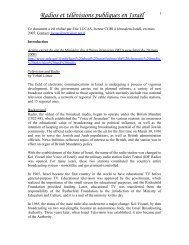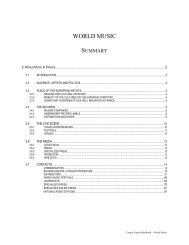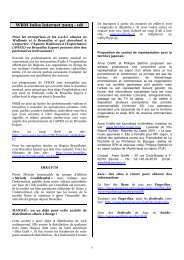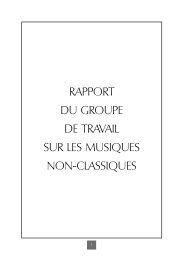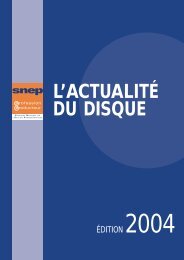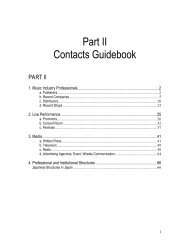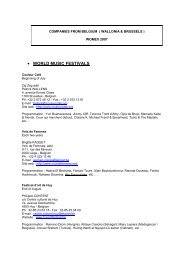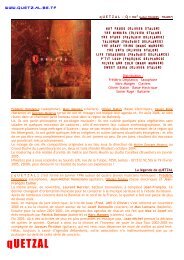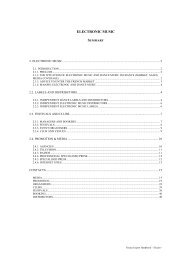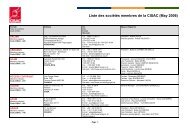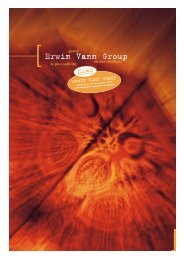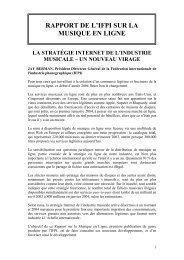Create successful ePaper yourself
Turn your PDF publications into a flip-book with our unique Google optimized e-Paper software.
MONETISING MUSIC IN AN ERA OF FREE - THE ROLE OF ISPs AND GOVERNMENTSThe case for ISPcooperation: key factsn Internet Service Providers (ISPs)would be enforcing their owncontracted terms and conditionsand applying the same approachtowards illegal behaviour as theywould with non-paying subscribers.n It can solve the problem.Seven out of 10 music consumersdownload music illegally becauseit’s available free (EntertainmentMedia Research, UK 2008).n P2P file-sharing, a large part ofwhich is unauthorised copyrightedmusic and film, accounts for up to 80per cent of all internet traffic (ipoque).“We were one of the first contentbusinesses to have to grapple witha business model that suddenlywasn’t a business model at all.Suddenly it became common forconsumers – and businesses – to useour music without paying for it.“Elio Leoni Sceti, Chief Executive,EMI MusicInternationally, demographic analysispoints to future trends and suggests theproblem, in the absence of a solution, willrapidly get worse. In the US, Europe andAustralia, independent research confirmsthat teenagers and young adults – thegeneration of future music consumers –acquire the most unlicensed music. JupiterResearch found in 2008 that one in three15-24 years olds in Europe uses copyrightinfringingP2P networks – three times theproportion that consumes music legally.Further research points to a key trend:unlawful downloading is driven by freeavailability - not by greater choice ofrepertoire. It is the lack of a requirementto pay that is the single biggest attractionfor consumers who illegally file-share.Entertainment Media Research in the UKfound that 71 per cent of people who saidthey file-shared more heavily in 2008 citedthe fact that they could obtain music withoutpayment as the number one reason fortheir activity. It is the avoidance of paymentrather than a superior service that promptsinternet users to illegally swap copyrightedmusic. Reinforcing this finding, researchfrom NPD in the US in 2008 found thatusers were describing their experience ofunauthorised P2P networks as getting worse.There is clear evidence that consumers,though often unlikely to pay voluntarily,nonetheless want artists and copyrightholders to be paid and their intellectualproperty to be respected. Researchcommissioned by the Canadian governmentfound that nine in ten consumers backedstrong copyright laws to protect creators.IPSOS in France found that 84 per centof people who had downloaded musicillegally thought artists and authors shouldbe paid for their work. These figures pointto a central principle in the music industry’scurrent priorities for improving the digitalenvironment: namely that while consumers’instincts are to acquire music legitimately,the widespread availability of unlicensedfree music acts as a disincentive.n ISPs have an extensive technicalability to control traffic on theirnetworks. AT&T, the largest AmericanISP, is testing a system to limitmonthly uploads and downloads ofits subscribers in order to contain“bandwidth hogs” who use adisproportionate share of networkcapacity. Comcast, the secondlargest American ISP, has imposednationwide download capacitylimits on subscribers and will cancelsubscriptions of repeat infringers.“The victim of online musicpiracy is the freedom ofartistic expression.”Yves Riesel, President,Abeille Musique France,independent label23



